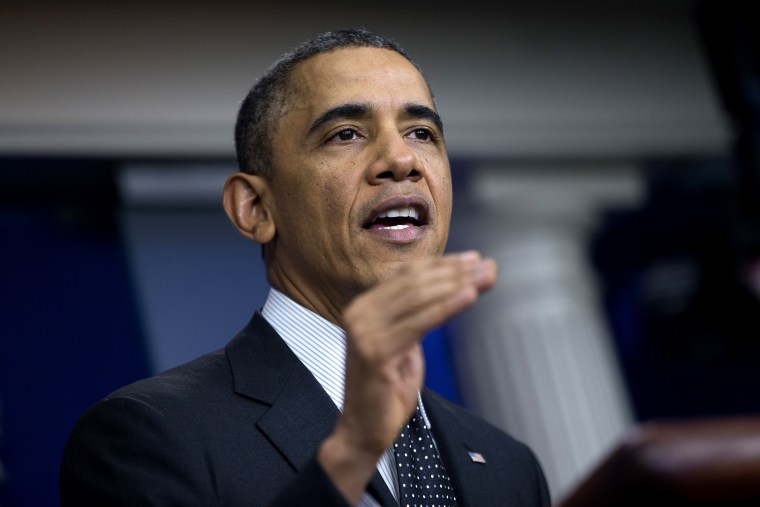Shortly after the Senate’s vote to go nuclear, President Obama applauded Democrats’ unprecedented move to put an end to the filibuster for executive and judicial nominees. The move now clears the way for the president's judicial nominees who were being blocked by Republicans.
The president said the Senate’s move was necessary due to the “abuse of arcane procedural tactics.” He said neither party was blameless, but ripped Republicans who have blocked 30 of his nominees. “Enough is enough,” said Obama.
He added: “Over the past five years, we had an unprecedented pattern of obstruction in Congress that has prevented too much of the American people’s business from getting done…Today’s pattern of obstruction isn’t normal. It’s not what our founders envisioned.”
By a 48-52 vote, Senate Democrats voted to officially change the senate rules; a “no” vote was a vote to change the rules. Only three Democrats sided with the Republicans, including Sens. Carl Levin of Michigan, Joe Manchin of West Virginia and Mark Pryor of Arkansas.
The filibuster rules will now be overhauled in this Congress so that the continual GOP threat of filibuster doesn’t effectively require 60 votes to confirm judicial and executive nominees. There is still an exception for Supreme Court nominees.
There are clear incentives – Republicans in the upper chamber can no longer block Obama’s nominees. But there are drawbacks, too. After all, Democrats won’t always hold a Senate majority – they may well lose it next year – and by setting a reformed-filibuster precedent, Dems could find themselves without a key tool when they’re inevitably back in the minority.
Democrats defended the vote, arguing it was their last option after Senate Republicans blocked—for the third time in three weeks—Obama’s latest pick, Robert Wilkins, to be a judge on the powerful D.C. Court of Appeals.
Senate Minority Leader Mitch McConnell said after the vote that it was a “sad day “ for the Senate, adding the Democratic majority “broke the rules” and was seizing on a “power grab.”
The president also criticized Republicans' efforts to stall several pieces of legislation while he has been in office, including immigration reform, gun control and equal pay for women. Obama pointed to his time as a U.S. senator, saying he knows the importance of the upper chamber of Congress, but that the latest obstruction was solely based on resisting “the policies that the American people voted for in the last election.”
Obama said: “This isn’t obstruction on substance or qualifications. It’s just to gum up the works.”
